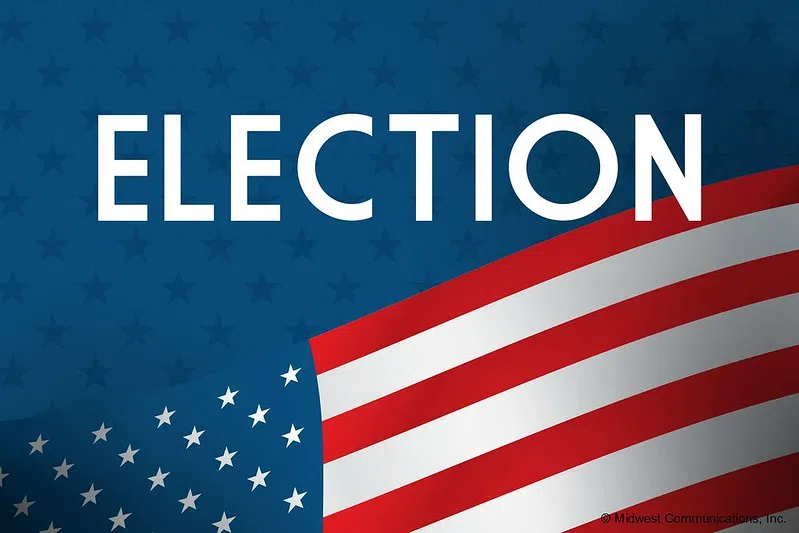FARMERSBURG, Ind. (WTWO/WAWV) — Have you ever wondered how secure your vote is?
With March primaries quickly approaching in Illinois, and Indiana primaries coming in May, election security is a topic of conversation for many voters.
In a recent AP poll, 50% of Americans said they’re “extremely concerned” about voting systems being hacked.
FBI Cybersquad Special Agent Michael Alford said that level of concern is not necessary.
“The votes on Election Day themselves are relatively safe,” Alford noted.
On the other hand, ISU Instructor of Criminology and Security Studies William Mackey said hacking voting machines has been easily accomplished in the past at DefCon hacking conferences.
“Last year, we had an 11-year-old be able to access one of the voting machines and change the vote in less than 10 minutes,” Mackey said.
One source of concern for voting machine hacking comes from the concept of modems going “online” and being susceptible to interference through the Internet.
“Independent cyber-security researchers found that there was at least 35 voting systems in the short time that they looked that we connected online and thus gave them access to the vote,” Mackey said.
Alford said there is sometimes a brief connection to relay vote information to the Secretary of State, but that most of Indiana’s data is handled through a transfer of USB drives.
“Here in Indiana, I know a lot of the voting machines are handled by the Secretary of State’s office and the county clerks,” Alford said, “From what we know here in our office, it’s primarily, machines can connect to the Internet but they typically don’t.”
Prof. Mackey explains the need for cyber-security training and funding in Indiana:
In October 2019, SOS Connie Lawson and several State Election Commission members became defendants in a federal lawsuit seeking changes in the use of direct recording electronic voting machines (DREs) which the plaintiffs claim provide no voter-verifiable paper trail. The lawsuit cites concerns from the United States Select Committee on Intelligence.
State data shows six Indiana counties here in the Wabash Valley use only DREs. SOS Communications Director Valerie Warycha said the office doesn’t comment on pending litigation, but she did point out that the counties in Indiana using MicroVote DREs have an option to add voter verifiable paper trails. Warycha added that the state is paying for 10% of the machines to get a VVPAT.
Alford stressed that the chances for machine hacking are low in Indiana.
“Most of the attacks that we’re aware of based on security researchers, you have to have physical proximity or access to the device, so there’s very little chance of somebody being able to hack in and actually modify votes,” he said.
Mackey agrees machines aren’t the biggest concern in election security.
“People are much more vulnerable than machines in an election,” Mackey said.
Prof. Bergbower shares a historical example of election interference:
The issue of misinformation isn’t new.
“The information environment has always been corrupted by interested parties,” ISU Assoc. Professor of Political Science Matt Bergbower said. “Before the Internet, we would have pamphlets and people on the side of the curb handing out information that may not be the most accurate.”
But we now live in a society that prioritizes technology and the immediate gratification that comes with using it. Unfortunately, technology and the Internet have taken hacking and misinformation to the next level.
“There’s an opportunity for them to target these entities, like Facebook and Twitter,” Bergbower said, “So they can create these accounts and disseminate information and it’s the Wild Wild West, right? The rules don’t apply.”
And when rules are cast aside in a process like an election, disarray can set in quickly, as Americans saw happen after the 2016 election as rumors of foreign interference swirled around media headlines and social circles.
“If you can get enough people on either side of the aisle to question the legitimacy of the vote, then no matter who wins, there’s going to be some sort of chaos,” Mackey said.
Prof. Bergbower shares some solutions to the issue of misinformation:
Law enforcement agents take election crimes seriously, enforcing strict penalties for election interference or misconduct.
“There are severe penalties,” FBI Special Agent Ben LaBuz said, “Penalties that would carry potential federal prison time for attempting to hack a voter registration site, to deny services, and even to stuff ballot boxes or illegally register voters.”
But the FBI is prohibited from being armed at polling locations on Election Day, which means they have to leave the process to county officials and responsible voters, and take over investigations after the votes are cast.
Regardless of the kind, once interference happens, it can create a ripple effect.
“And that effect is a little more distrust in the election process,” Bergbower said. “And that’s dangerous.”




